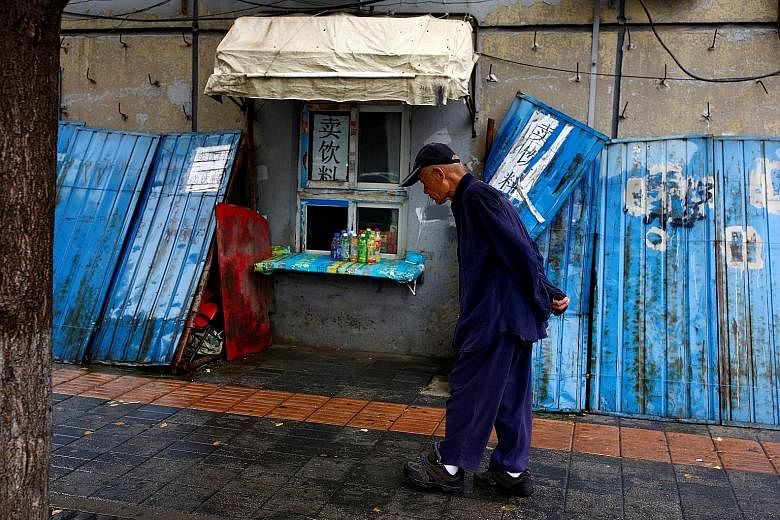BEIJING • China's top advisory body has called for better eldercare services, particularly in the rural areas, amid growing concerns that the country's ageing population is being neglected following decades of rapid urbanisation.
In spite of achievements made in recent years, China still faces challenges in eldercare and an inadequate pension fund, said members of the Chinese People's Political Consultative Conference (CPPCC) National Committee.
According to a statement issued in Beijing yesterday, the committee called for enhanced efforts to promote home-based and community-based care for the aged, and improve the services in rural areas.
The meeting was presided over by CPPCC National Committee chairman Yu Zhengsheng, reported Xinhua news agency.
A recent report highlighted the plight of senior citizens in the country, saying around 500,000 go missing every year - or 1,370 a day. Most of the cases occur in rural communities and small cities, areas where young people often leave to find work in China's fast-developing larger cities, said the White Paper on the Lost Elderly.
The report was released on Sunday to coincide with Chongyang Festival, which is also Seniors' Day, to promote respect for the elderly.
Around 25 per cent of those who go missing have been diagnosed with Alzheimer's disease or dementia, while 72 per cent suffer from some sort of memory impairment, according to the report.
-
1,370
Number of senior citizens who go missing each day, or around 500,000 every year.
-
25%
Percentage of senior citizens who go missing who have been diagnosed with Alzheimer's or dementia.
-
72%
Percentage of senior citizens who go missing who suffer from some sort of memory impairment.
Of those who are found after being reported missing, 25 per cent go missing again, said the report's co-author Xiong Guibin.
The report was jointly issued by Zhongmin Social Assistance Institute and online content aggregator Toutiao. "This is obviously a huge number and a social issue we cannot afford to ignore," Mr Wang Zhikun, president of the Zhongmin institute, was quoted as saying by CNN.
Toutiao launched an app in February that sends alerts to users who come within 10km of the location where a missing person was last seen. So far, the app has helped to locate 340 people, including more than 100 seniors.
Mr Zeng Hua, who is in charge of the app, told China Daily: "I know how these families feel. My own grandmother had Alzheimer's for 10 years and we used to lose her four to five times a month.
"Back then, I would never have thought of anyone else outside our family helping us."
By the end of last year, China had more than 222 million people aged 60 or over - 16 per cent of the population - while the average life expectancy is now about 76.
The government has warned that by 2030, China will have the most aged population on earth, with over 400 million people above 60. Senior citizens will make up more than a third of the population in 2050, according to the China National Committee on Ageing.
It estimates that Chinese people will spend about 5 trillion yuan (S$1 trillion) on elderly care by 2050.
XINHUA, CHINA DAILY/ASIA NEWS NETWORK

